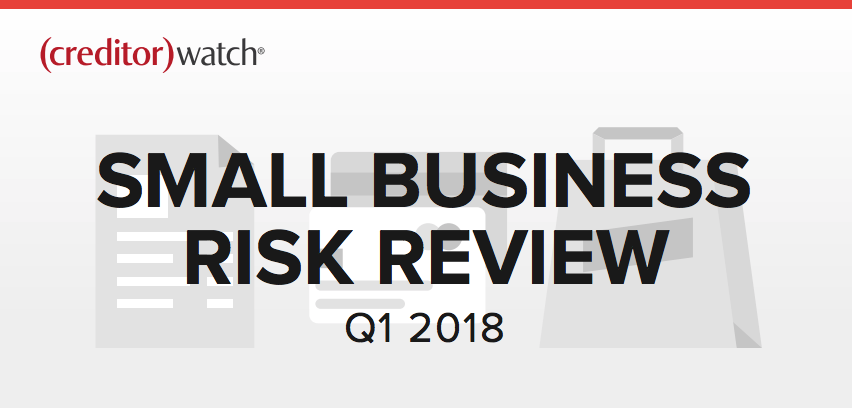CREDITORWATCH | 2 MIN READ
The first Small Business Risk Review for 2018 presents positive outcomes to the start of the year with a large decline in unincorporated entities and court actions across some states. Despite this, it is not all rosy as payment defaults have increased.
Notable Findings
In comparison to Q1 2017, New South Wales has seen the most significant drop in court actions and values at -43% and -11%. Victoria saw the next significant decrease of -17% in court actions and -7% in values.
The number of failed unincorporated entities (individuals/sole traders, trusts and partnerships) has seen a significant drop of -56% during the first three months of 2018 in comparison its 76% increase in Q1 2017. Small businesses are generally doing much better at the moment, which can explain the reason for this drop. Of course, this depends on the industry and location.*
While there has been generally good news throughout the report, the average payment default value has actually increased by 14% in comparison to last year. The rising value of payment defaults is a good reminder that creditors should still be vigilant and have solid knowledge of debtors. This could also be due to struggling states like Queensland which is still feeling the effects of natural disasters and the end of a mining boom.
The 14% increase in payment defaults may also be explained by seasonal trends. January is the worst month for payments. As a result of school holidays and closed businesses, bills typically remain unpaid a lot longer than at other times of the year. In fact, a XERO Small Business Insights report showed that businesses waited an average of 38.8 days to be paid from a 30-day invoice which is a record 9-days late. While improvements have been seen in February and March, XERO states that cash flow has actually worsened.
*Not all businesses are doing better. Retail, hospitality and construction are performing poorly



